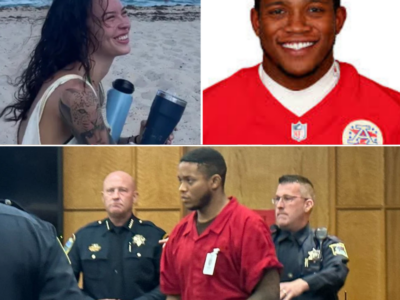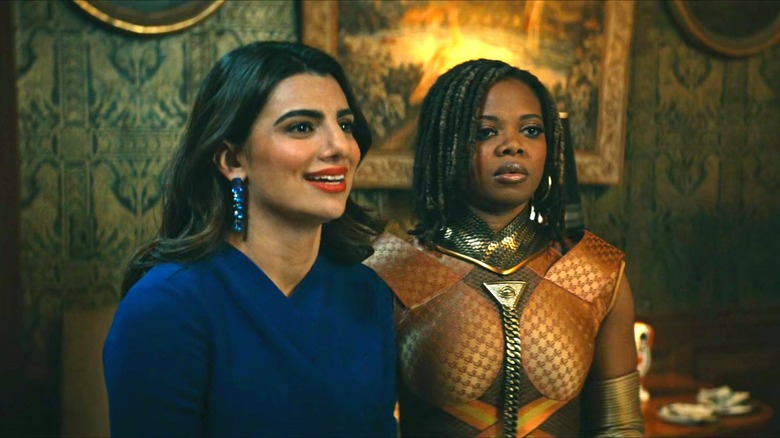
It’s safe to say that Prime Video’s “The Boys” has become a television phenomenon far exceeding the healthy but comparatively modest popularity of its source material. Although the Garth Ennis and Darick Robertson-created comic series had its share of devoted fans long before the TV adaptation came around, you’d be hard-pressed to find many fans of “The Boys” today who wouldn’t agree that the show improved on the comics, deepening its storytelling, characters, mythos, and political satire while avoiding certain pitfalls.
It would appear that the show’s writers, led by showrunner Eric Kripke, pulled off that improvement not by staying faithful but by straying completely from the source. Beyond the premise and the basic outline of characters and organizations — with even some of those being drastically changed — “The Boys” comics and “The Boys” TV show might as well be two entirely different properties. Kripke and company have mostly used the comics as a mood-board from which to pull ideas that fit their vision. Naturally, that gap between source and adaptation becomes wider with each passing season, and that became an outright canyon in season 4, where the number of significant differences is enough to argue that, at this point, “The Boys” is telling an entirely different story.
Jessica Bradley finally enters the show as Sister Sage
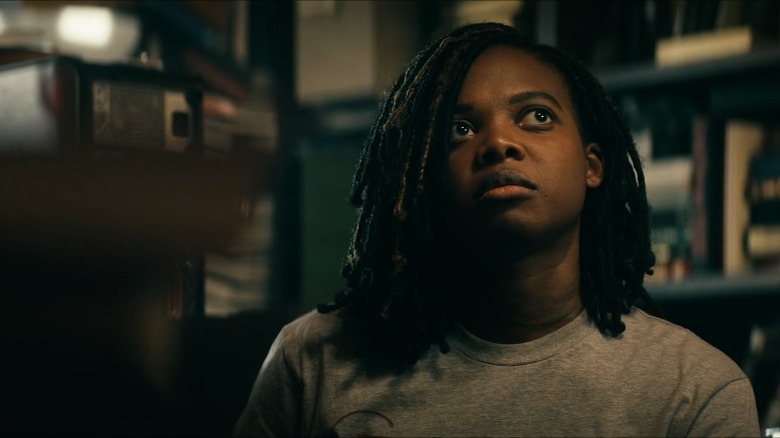
The character of Jessica Bradley figures prominently in the original comics. She’s a senior officer for Vought-American who moves ruthlessly and smartly up the corporate ladder every chance she gets, making sure to stay close to its executive CEO James Stillwell, aka the Guy From Vought. Despite her successful bid for corporate success and centrality in the Vought-American hierarchy, she’s the single VA employee who’s shown to have any awareness of the company’s incompetence, destructiveness, and general evil — an awareness that eventually creeps up on her conscience.
The role fulfilled by Bradley in the comics was originally refitted into a new character, Ashley Barrett (Colby Minifie), who retains some of Barrett’s characteristics (such as a proclivity for tearing out her own hair) but is otherwise pretty different from her inspiration. In season 4, however, Jessica Bradley was properly introduced into the show — not as a VA exec, but as a supe and debuting member of the Seven. That supe would be Homelander’s trusted new recruitee and go-to voice of reason Sister Sage, the smartest person on the planet — a superpower that turned out to be especially difficult for the showrunners to write properly.
Kimiko’s backstory is more fleshed out
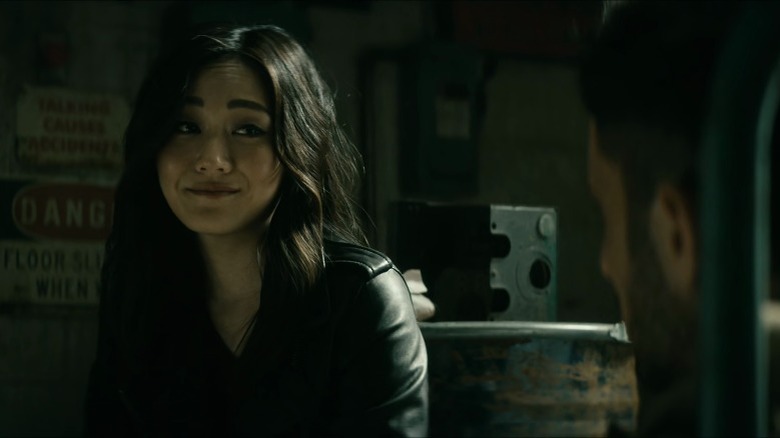
It wouldn’t be an exaggeration to say that what the writers of “The Boys” and Karen Fukuhara managed to do with Kimiko Miyashiro was straight-up heroic. In the comics, Kimiko didn’t even have a name. She was always just known as “the Female of the Species,” was generally relegated to side character status, and mostly had a major role during battle sequences, where her defining trait was her psychopathic love of violence and murder. The comics never really cared to explore her backstory in depth, and her wordlessness meant that she never got to express herself to the Frenchman or anyone else.
The series adaptation of “The Boys” struggled with making a viable TV character out of the Female at first, but once they gave Kimiko her name and started delving into her past, things changed dramatically. She has since become one of the most fleshed-out and dynamic characters on the series, far exceeding the depth of characterization afforded to her comics counterpart, and season 4 made that official by clarifying her backstory. Where the comics simply had her as a lifelong prisoner of evil scientists following her accidental fall into a tub of Compound V waste as a child, the latest season of “The Boys” reveals that Kimiko developed her mutism as a result of being forced into caged fights against other kids by Shining Light soldiers, with silence being an invaluable tool for survival.
A-Train’s redemption arc
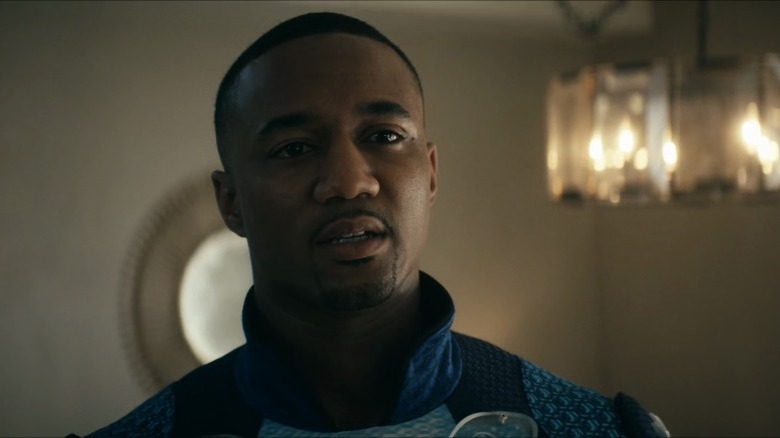
Much like on the TV series adaptation, the plot of “The Boys” comics is kickstarted by A-Train, when he accidentally kills Hughie Campbell’s girlfriend Robin Mawhinney, thus prompting him to join the Boys. In the comics, however, not only does A-Train get over his guilt about the incident very quickly, but he’s shown to be just an all-around nightmare of a person — a self-obsessed manchild who annoys even the other supes with his recklessness and immaturity, to say nothing of his nauseating obsession with humiliating and sexually assaulting Starlight. He eventually meets his demise when Billy Butcher captures him and offers him to be killed by Hughie, who does so upon verifying that A-Train is completely unrepentant about killing Robin.
On the show, of course, A-Train is a lot more nuanced pretty much from the get-go, and his moral anxiety over the Seven’s increasingly horrifying actions reaches a crescendo in season 4. Early on in the season, he’s shown to be conflicted over his participation in the ambush against Todd (Matthew Gorman) and the other Homelander fans, refusing to take active part in their murder, and he later forms a secret alliance with the Boys and becomes an informant for them, even shaking hands and making peace with Hughie (Jack Quaid). The season closes out with him quitting the Boys and going into hiding to escape Homelander’s wrath — a far cry from his bitter and unsympathetic end in the comics.
Firecracker is original to the series
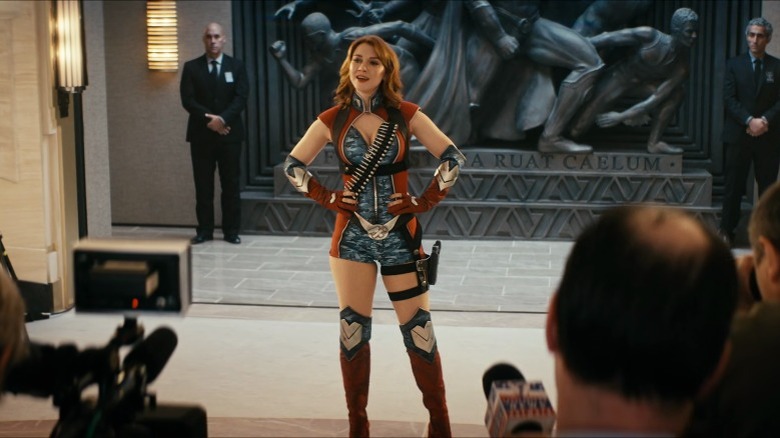
There aren’t many female supes in the comics version of the Seven. After Starlight joins to replace Lamplighter, it’s just her and Queen Maeve (and then just Starlight after Queen Maeve’s death) until the end of the series. On the TV adaptation of “The Boys,” meanwhile, several more female supes have joined the Seven over the years, with one of those (i.e. Stormfront, played by Aya Cash) being a comics gender flip, one (Jessica Bradley, aka Sister Sage) being a character rewritten as a supe, and one being completely original to the series: Misty Tucker Gray, aaka Firecracker, portrayed by Valorie Curry.
A devout Christian with hardcore reactionary values, completely cosmetic morals, and a giddy love of guns, Firecracker is a walking send-up of American neoconservative ideology, having been modeled after Marjorie Taylor Greene and other prominent right-wing female politicians, according to Eric Kripke. Despite her newness to the show’s mythology, she plays a very big part in season 4 through her constant media appearances as a spokesperson for the Seven, her animosity with Starlight (Erin Moriarty), and the relationship she strikes up with Homelander (Anthony Starr).
Homelander’s coup unfolds very differently
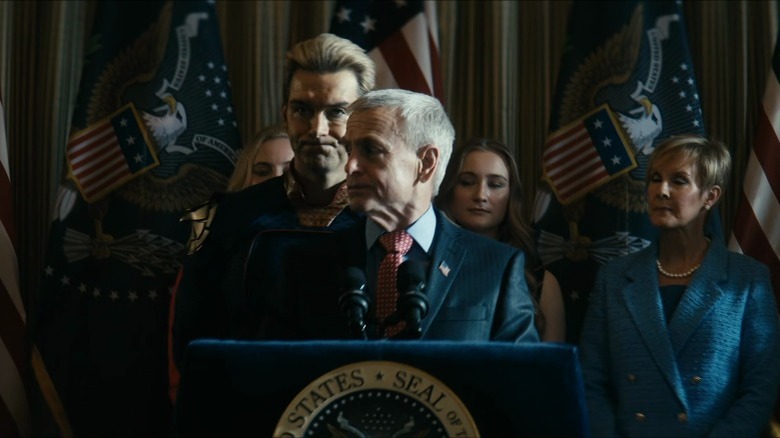
Throughout most of the latter half of “The Boys” comic series, following the revelation of the supposed photos of heinous acts that send him on a path of unrepentant sociopathy, Homelander becomes determined to free himself and other supes from Vought-American’s oversight. He eventually rouses supes into joining him on a coup d’état, invading the White House and killing everyone there, including Victor Neuman, who had been sworn in as President of the United States by then. His government takeover doesn’t last long — being quickly interrupted by a faceoff with Billy Butcher and then by the arrival of Black Noir, who reveals himself as the evil mastermind behind the series’ entire plot — but it’s still a momentous turn of events for the world of “The Boys.”
Although season 4 of the Prime Video show also sees Homelander stage a government takeover, it unfolds much differently, mostly through behind-the-scenes machinations orchestrated alongside Sister Sage and Victoria Neuman (Claudia Doumit). He and Neuman join forces to convince U.S. senators to turn on Robert Singer (Jim Beaver) and support Neuman’s bid for the presidency. Then, when Neuman is killed by Billy Butcher, Sage doctors footage to make it look like it was a hit ordered by Singer — resulting in Senator Calhoun (David Andrews) becoming president, declaring martial law, and putting a Homelander-led supe army in charge of national security, effectively giving the Seven power over the country.
Victoria Neuman’s arc is entirely new
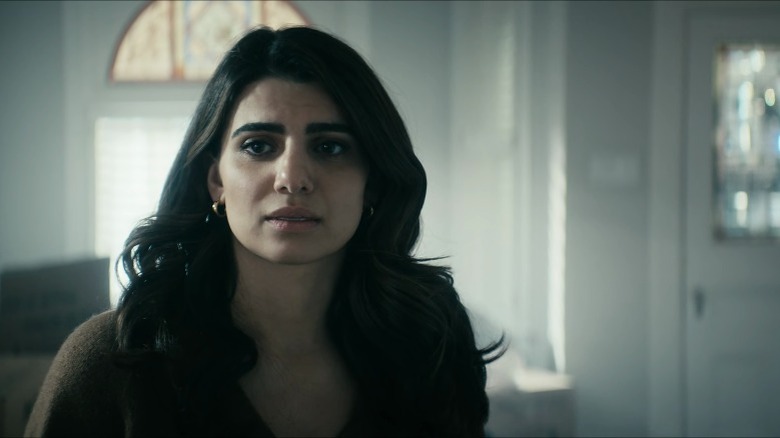
Another gender-flipped character on the TV adaptation of “The Boys” is Victoria Neuman, who originated as Victor “Vic the Veep” Neuman in the comics. The original version of Neuman was a lot less prominent plot-wise, mostly playing second fiddle to President Robert Shaefer and then acting as a figurehead for Vought-American interests after Shaefer gets killed by a wolverine and he’s sworn in as president.
Needless to say, almost everything we see of Victoria Neuman’s cunning, political intelligence, and moral complexity on “The Boys” was invented for the show and bears little relation to the comics’ Victor Neuman. But the difference becomes especially stark in Season 4, not just because of Neuman’s very deliberate efforts to climb to the presidency (as opposed to Victor, who becomes president pretty much by accident), but especially because of her would-be heel-face turn.
In the back half of the season, when Homelander publicly outs her as a supe, Neuman realizes that her plans have gone awry and that she and her daughter Zoe (Olivia Morandin) are in great danger, so for the sake of her daughter, she turns to the Boys for help, seemingly determined to right her past wrongs. The one thing she turns out to have in common with Victor Neuman is that they both get killed off just as things are heating up.
Joe Kessler’s character is drastically changed
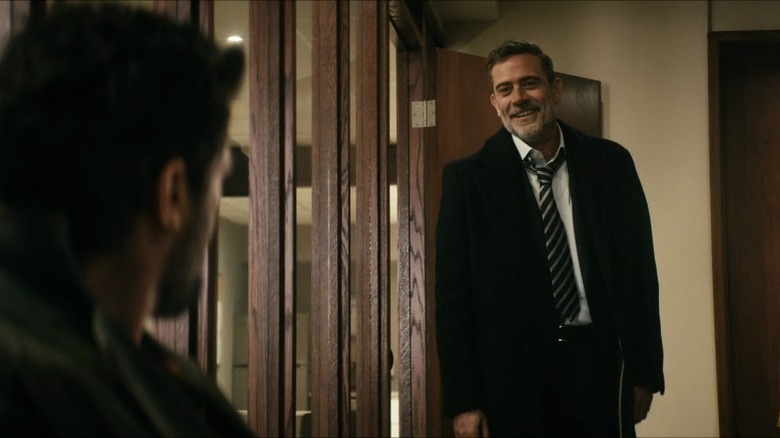
In the comics, the character of Howard Kessler, better known by his nickname “Monkey,” is a pencil-pushing CIA bureaucrat who supplies Billy Butcher and the rest of the Boys with intelligence in their anti-supe work. He is later appointed director of the CIA by Susan Rayner after she leaves the post to run for U.S. Senate, and in his time as director, works to undermine the Boys, only for Butcher to get back at him. His most notable traits as a character, aside from his CIA work, are his erectile dysfunction and his fondness for sexually assaulting women in wheelchairs.
Conversely, the TV version of Kessler that appears in season 4, renamed Joe and played by Jeffrey Dean Morgan in a difficult casting feat, is more sympathetic right off the bat, if only because he’s an assault-prone creep. As a matter of fact, the only two things the character really retains from the comics are his surname and his proximity to Billy Butcher. Otherwise, Joe Kessler is basically an entirely different character: an Afghanistan War veteran who was left for dead by Butcher and then appears years later as a figment of Butcher’s imagination, becoming a manifestation of Butcher’s “dark side” as it fights for dominance in his psyche following his overuse of Compound V.
Billy Butcher gets new powers
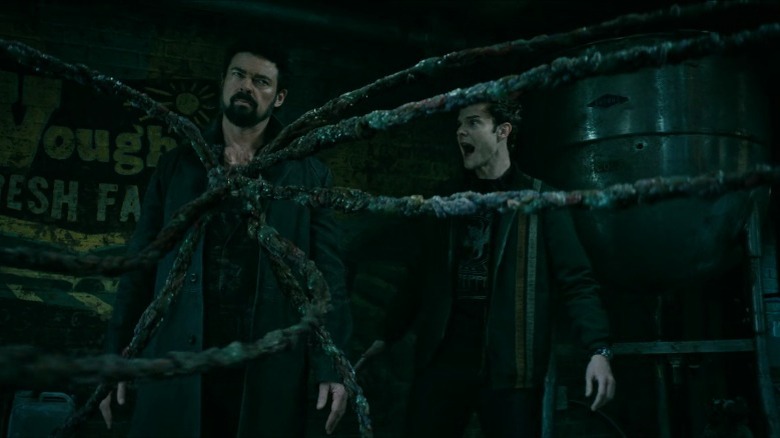
Almost all principal players in “The Boys” comics, from the Boys themselves to the Seven, are superpowered relatively early on. The show takes a different route, establishing a pretty clear supe/non-supe divide between the Seven and the Boys (with the exception of Kimiko) that gets blurrier and blurrier as the seasons progress. A big turning point for the series, indeed, is the one in which Billy Butcher and Hughie take Temp V, a variation of Compound V that grants temporary powers. Initially, the powers Butcher gets are quite similar to those acquired by his comic counterpart through Compound V: superhuman strength and durability, with the addition of Homelander-like invulnerability and heat vision.
At the end of season 3, Butcher learns that he’s become terminally ill from the Temp V use. In season 4, we find out that he’s resorted to even more Compound V in a desperate effort to cure himself, which has caused him to develop a tumor-like black mass inside his body. The entire season hints that the mass in question is in fact some kind of superpower in itself, and in the season finale, it’s finally revealed that he’s now endowed with a power completely unlike anything in the comics: massive tendrils that shoot out from his chest and wreak havoc with super-strength.
Black Noir is replaced by Black Noir II
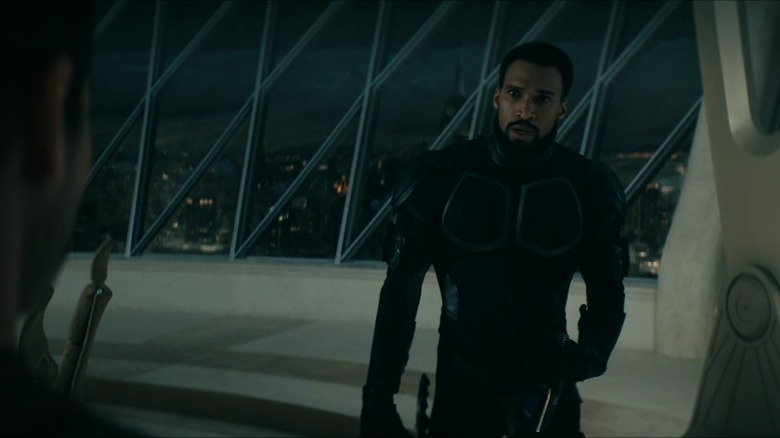
The difference between the comics version of Black Noir and his TV counterpart cannot be overstated. In fact, the nature of Black Noir is the big narrative secret underlying the entirety of “The Boys” comic series. At the end, it’s revealed that he’s a clone of Homelander that was tasked with controlling him should he ever go off the deep end, then he went off the deep end himself and started committing monstrous acts in Homelander’s place in order to turn him evil. All in all, Black Noir is as close to a Big Bad as “The Boys” comics have, and it’s absolutely crucial to his character that he’s a Homelander clone.
In TV’s “The Boys,” Black Noir (Nathan Mitchell) is not a Homelander clone, and that alone makes him fundamentally different from his comics version. The fact that he won’t be revealed as an evil mastermind enables the show to have Homelander kill him off at the end of season 3. Then, in season 4, the show makes the separation from the comics extra-official by bringing Black Noir back from the dead — kind of. Enter Black Noir II (also played by Mitchell), an aspiring actor who gets hired by the Seven as a replacement for the original Black Noir. Needless to say, the comics’ Black Noir doesn’t even die early enough in the series to be replaced, and his death is the big climax leading into the concluding “The Bloody Doors Off” arc.
Tek Knight has a very different role
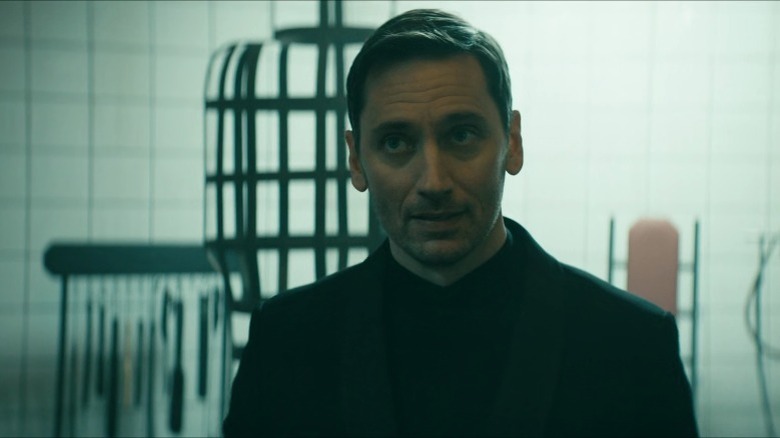
A playboy superhero whose original incarnation was among the founding members of the superhero group known as Payback, the Tek-Knight does not actually have superpowers; his crimefighting is done through advanced technology, a power suit, and the help of his sidekick Laddio. The current iteration of the Tek-Knight at the time in which “The Boys” takes place is Robert Vernon, whose bizarre and seemingly uncontrollable sexual compulsion towards people and objects turns out to be the result of a massive brain tumor. He is suspected of having murdered Steve Rubinstein, a young gay man whose death the Boys are looking into, and dismissed from Payback. Later found to be innocent, he ultimately dies crushed by bricks while rescuing a mother and son.
Although the TV version of “The Boys” retains the wealth of Robert Vernon, aka Tek Knight (Derek Wilson), as well as Batman-esque vibe, partnership with Laddio (Reid Millar), and tumor-fueled sexual compulsions, the role he plays in the plot is quite different. He’s not part of Payback, he does a lot of Vought’s bidding as the host of Vought+’s “The Whole Truth with Tek Knight,” and the Boys eventually exploit his proximity to the Seven by infiltrating one of his parties and discovering the deal he’s made for his private prisons to be used by Homelander and Sage as internment camps — a reaction to which his butler Elijah (Tyrone Benskin) reacts by strangling him to death.
Webweaver is still alive and kicking … at first
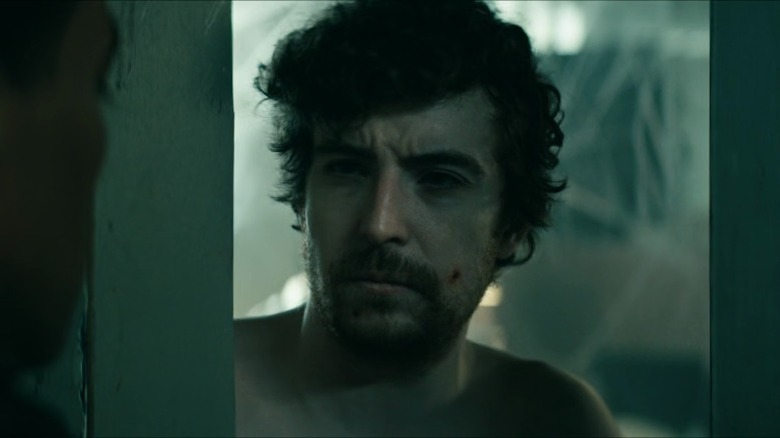
When “The Boys” comics begin, the superhero known as Webweaver is long-deceased. In fact, his death is revealed to have been an inciting event for the entire timeline of the series. A young web-swinging supe, about whom not much was known due to his non-affiliation with any superhero teams, he was suggested by Old Legend as a viable supe for Billy Butcher and Greg Mallory to kill in order to secure CIA funding. The plan went swimmingly, and Butcher and Mallory successfully offed Webweaver, contributing to the creation of the anti-supe task force known as The Boys.
In the world of the TV show, Webweaver (Dan Mousseau), also known as Patrick Whitehall, is still alive, and in Season 4, he makes his onscreen debut. First, he’s shown to give Butcher and Mother’s Milk (Laz Alonso) information about Firecracker in exchange for heroin. Then, when the Boys need to infiltrate Tek Knight’s mansion, MM knocks out Webweaver with a spiked heroin enema, and steals his suit so that Hughie can wear it to Tek Knight’s party. Later on in the season, Webweaver is found out by Firecracker and Homelander, who interrogate him. But before he can convince them that he is not in fact the informant they’re looking for (that would be A-Train), Homelander kills him. At least he got to be alive for a few chapters in this version.
Ryan Butcher’s TV-original arc becomes increasingly central
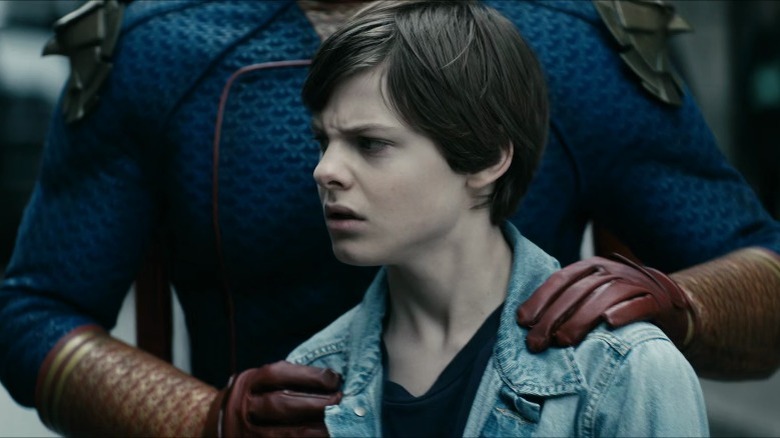
In the comics, Black Noir does sexually assault Billy Butcher’s wife Becky while passing for Homelander, which does result in a pregnancy. But she then dies in childbirth for real, and Butcher promptly has the superpowered child killed. On the show, Homelander was the true culprit, and both Becca (Shantel VanSanten) and the child actually survived, with Becca raising Ryan Butcher (Camero Crovetti) in a compound under Vought supervision. After Becca dies in one of the saddest moments on the series, Ryan is placed in hiding and cared for by Butcher, until Homelander wins him over and takes him in as a son.
This brings us to season 4, in which Ryan becomes so crucial to the plot as to break completely from the comics. The main dramatic thrust of the series is now concentrated on the question of whether Ryan can resist his father’s influence and become a decent and caring person, despite his unfathomable power, along with the attending question, “How will Homelander respond to having a child out in the world who isn’t his perfect mirror image?”
Everything points to Ryan’s arc being at the center of the next season’s “Butcher vs. Homelander vs. the remaining Boys” arch-narrative, with his influence potentially having already set Butcher on course to avoid his comics fate. In other words, you can’t look to the comics to guess how the show is going to end. We’re already through the looking glass.

